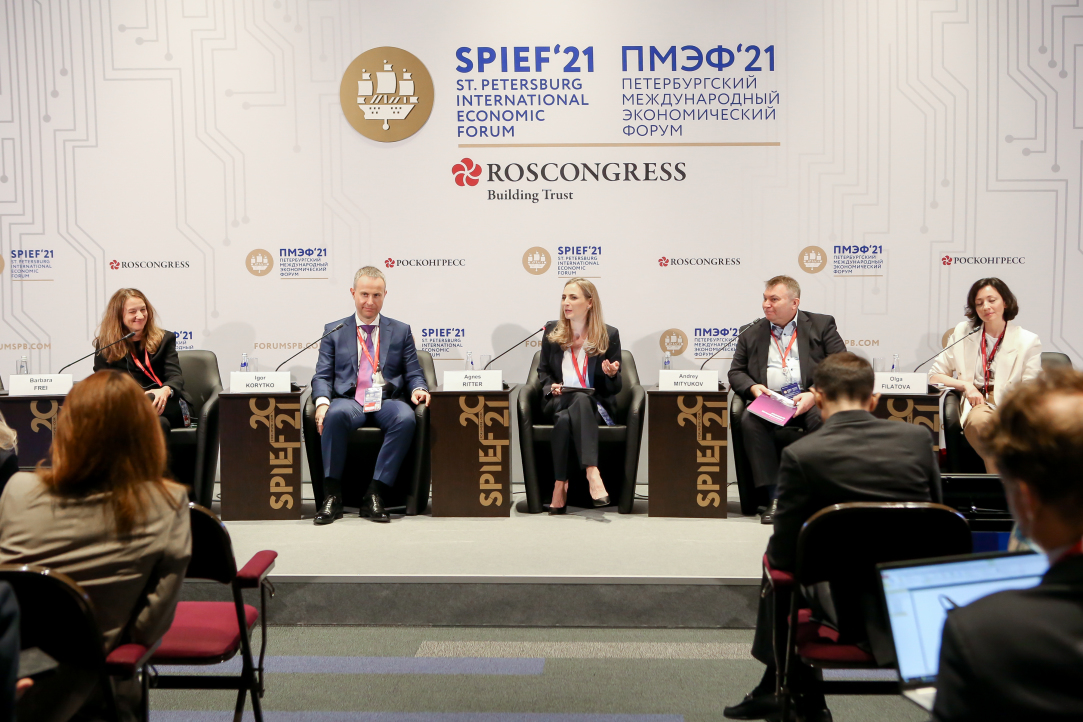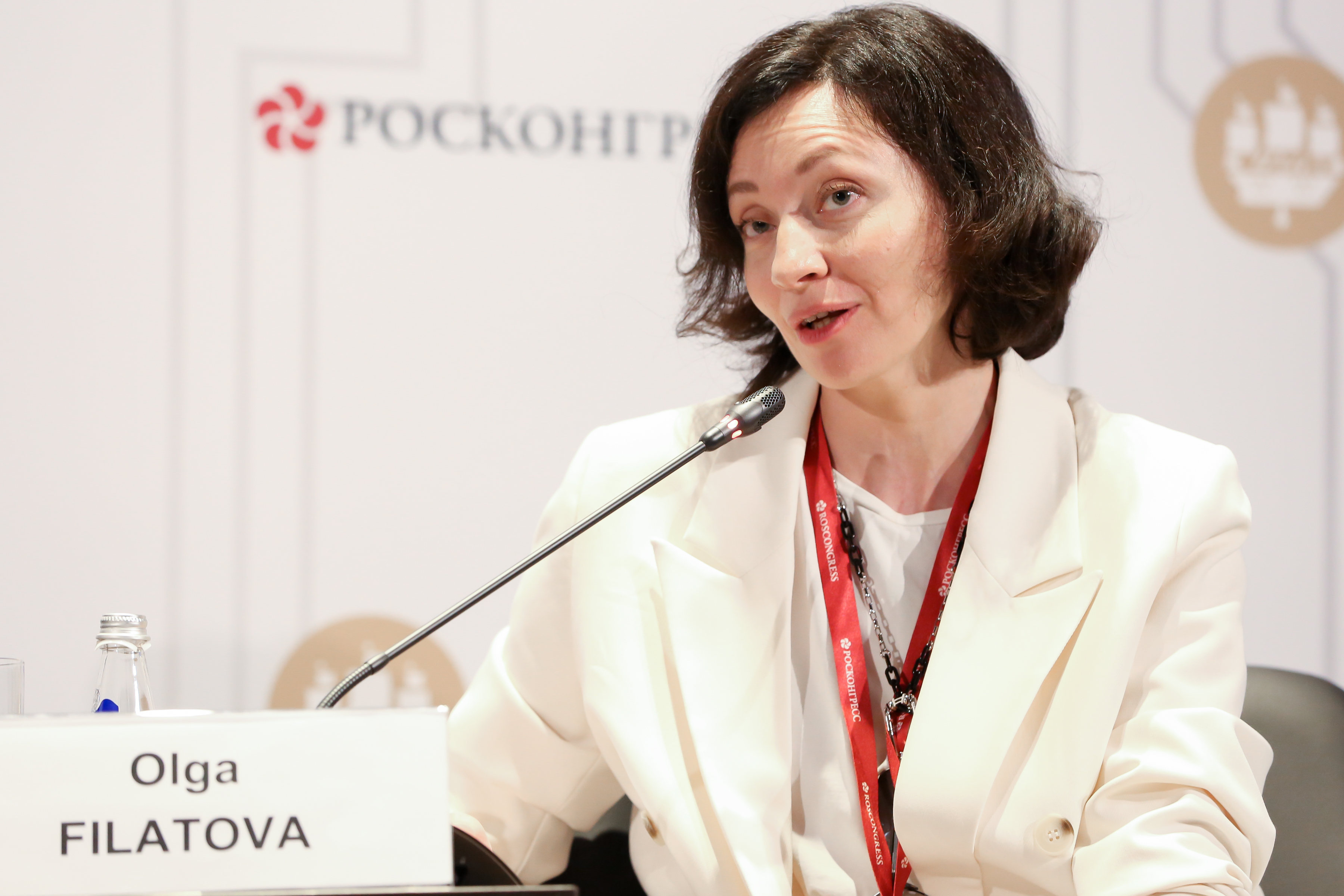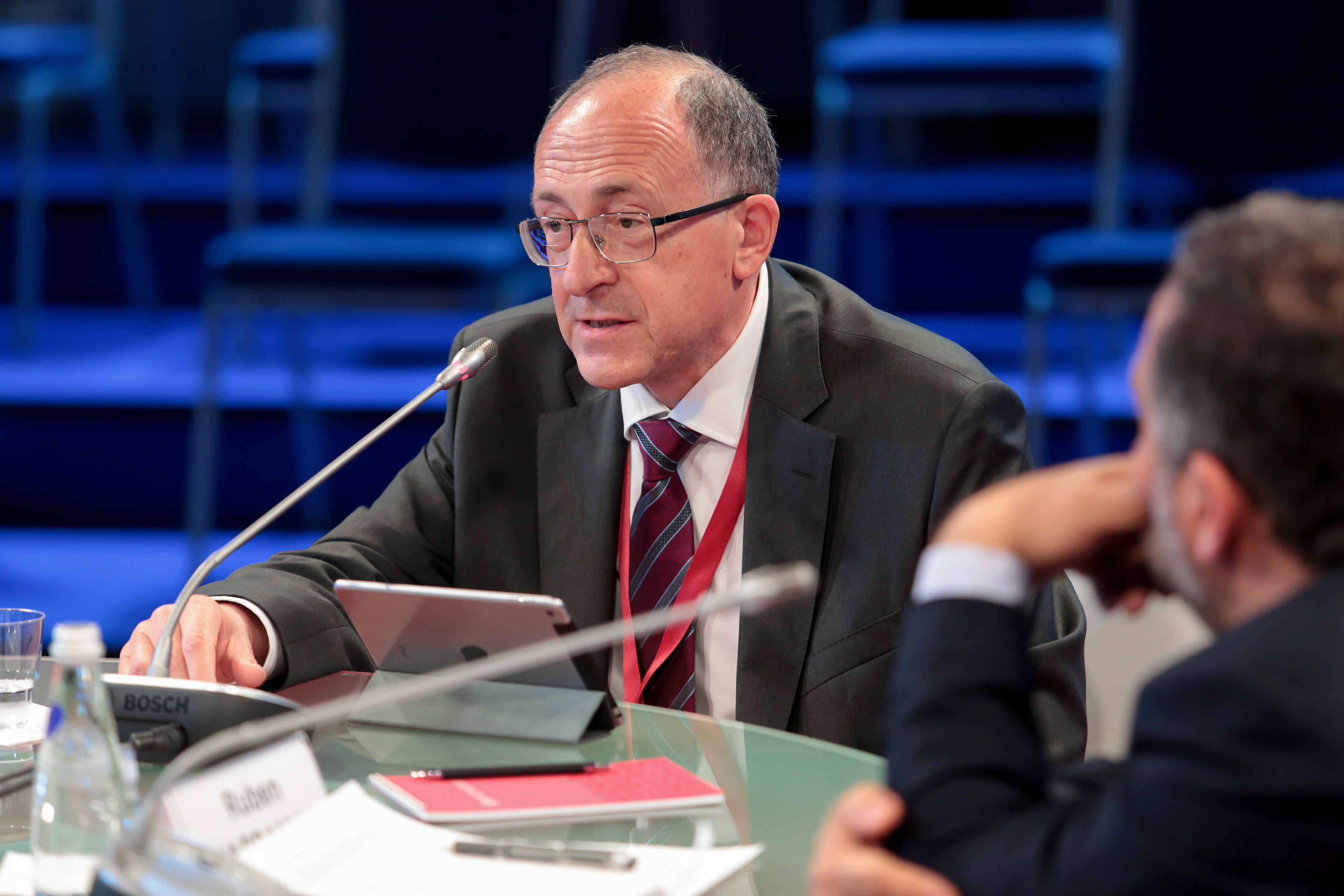Hybrid Offices and the Struggle for Power over Society

The St. Petersburg International Economic Forum continues. On Friday, several representatives from the Higher School of Economics took part in the discussions. Olga Filatova, Professor of Practice at the HSE Graduate School of Business, spoke about the Hybrid Offices study, while Lev Jakobson, Vice-President of the HSE University, gave an expert opinion at a session on network communities. "Trust is what we are lacking," emphasised Lev Jakobson. On June 5, the SPIEF will host a discussion with the participation of Yaroslav Kuzminov, Rector of the HSE University.
Rewiring the control systems
Olga Filatova, professor of practice at GSB, spoke about hybrid work format, which implies part-time online and offline employment, during the session "Corporations and Employee: How to Manage Human Capital in a Post-Covid World?". Top managers from Severstal, TMK, Utkonos, McKinsey, SAP and other companies also took part in the discussion
She pointed out that science does not yet have anything to say about hybrid formats of work, there is not enough data due to insufficient observation period. At the same time, a huge number of practical recommendations are coming out all over the world, because one has to live somehow in this format. The expert community in the field of people management should be ready shortly to start relevant research to offer business solutions and tools that can be used in the transition to a hybrid format of work.
The results of the research should be used to develop diagnostic tools, methods for assessing mental wellbeing, and recommendations for building a system of prevention, response and monitoring of the mental wellbeing problems of employees.

Olga Filatova explained that in the professional business community and academic circles, it is now common to consider the format of working process organisation as hybrid when more than a third of staff work outside the office over 50% of the time. These figures suggest that the human resources management process needs to change dramatically. We need to address how to engage, how to adapt, how to test and evaluate performance; how to build careers and evaluate succession; how to support creativity as well as self-organisation and self-motivation. Attitudes are now being 'rewired' on how to manage people.
There are many arguments in favour of spreading the hybrid workflow format. For example, there are savings on office rent, which in some cases accounts for 20-30% of all costs. The downside of the process is that some professions and skills will die out as a result of the mass transition to a hybrid format. Olga Filatova suggested that, in particular, the need to memorise a lot of information will diminish, as electronic assistants appear to help plan the day. Perhaps, the ability to recognise other people's emotions, to understand how closely your interlocutor listens to you, will decrease.
However, Olga Filatova believes that even though the need for human participation in many labour processes, including physical ones related to fine motor skills, such as writing, is receding, there will be an opportunity to develop these skills. For example, as a hobby. As they are necessary for mental training.
It is worth noting that HSE Graduate School of Business recently released its first analytical report, 'Hybrid Offices', co-authored by Olga Filatova and Maria Rykina. The experts agree that a return to the traditional (office) format of work organisation is impossible for several reasons. In particular, acceleration of digital transformation, further development of telecommunication technologies and networks will enable to organize remote workplaces more effectively, to ensure communication, control over the execution of work tasks, etc. In addition, the imminent arrival of large numbers of Generation Z employees in the labour market will require a rethinking of many of how people management processes are organised.
By hybrid formats, experts refer to a new format for organising employees' work time that combines both remote and office-based formats
We can talk about a hybrid office when enough employees work remotely to require a redesign of business processes, especially people management processes. A hybrid format calls for rethinking the role of HR as the task of managing the company's social capital reaches a new level of complexity.
Building a hybrid office and the accompanying change in people management processes must take into account several negative aspects: a possible decline in innovative potential, employee burnout, erosion of corporate culture and deterioration of social capital. These dark sides of remote forms of employment have been demonstrated by the lockdown situation.
Network communities and power over society
The recent experience shows that social groups and network communities, not bound into rigid hierarchical structures, united inter alia by the challenges of "new ethics", are increasingly engaged in a struggle with the traditional institutions of civil society and the state for the dominant role in defining the agenda, values, meanings and modern micro-ideologies. To what extent is this trend characteristic of certain countries, what role can it play in Russia's development in the near future, and what solutions should traditional civil society institutions and the political class offer to ensure that the competition between networks and institutions does not lead to chaos?
This is how the organisers defined the theme of the session "Networked communities and institutions in a globalising society: the struggle for power over society", which was attended by Lev Jakobson, Vice-President of HSE University.

He noted that the way he sees it, we can talk about a community when there is collective voluntary action in one direction. Such communities have always existed in different forms. What has changed now? Communities have become more accessible, the entry has become easier since the phenomenon now has a completely different scale and impact. "I wouldn't assess whether this is good or bad. The question is how to interact with those changes," says the scholar. There is a need to institutionalise them; without that, the interaction can only be in a rather negative key, expressed in censure, maybe punishment, which is also sometimes necessary, but only institutions can receive support and help with resources.
When talking about communities, one has to remember that a person is left alone with a huge number of problems in today's situation. Loneliness is the flip side of the fact that it is easy to enter a community, emphasises the vice-president of HSE University. There are advantages and disadvantages here, including from an economic point of view. On the one hand, there are huge opportunities for self-realisation. On the other hand, this is primarily true for self-sufficient and stable people; it is much harder for those who need support and identification. Networking facilitates fragmentation, but the potentially strong bond with the potentially weak, which operates in traditional ethno-confessional communities, is weakened in network communities.
There is a need to build bridges between communities, which would require external influence from the state
In interacting with communities, in the relationship between communities, it is important to know that in Russia, there is a very high level of trust in the familiar and a very low level of trust in the unfamiliar, and the gap between these two parameters is very large. And this fact is also true about communities. "Trust is what we are lacking", emphasised Lev Jakobson.
The university admission system
On Saturday, June 5 at 14:00, the St. Petersburg International Economic Forum will host a public discussion on "Exact Match: What an Admissions System for Universities Should Be" with the participation of Yaroslav Kuzminov, Rector of the Higher School of Economics.
University admission is a key part of the human capital formation system in all countries. Its fairness and effectiveness determines the further movement of talent, social mobility, and the quality of social lifts. This year the unified state examination, on which the Russian education system is based, celebrates its 20th anniversary. Does the current system of admission to higher education meet the demands of the times and global competition? What mechanisms are used by developed and developing countries for the distribution of students? Does the existing system of school student competitions help to ensure "social mixing" and access of talented youth to quality education? How competitive is the Russian selection system for higher education institutions? These questions will be answered by the session participants, including the Minister of Higher Education and Science of the Russian Federation, Valery Falkov.
Earlier, in an interview with Yevgeny Szyonov, the founder of the 'NOP' Telegram channel, Yaroslav Kuzminov called the Russian state examination system one of the best in the world. "The Unified State Exam, an independent system for evaluating educational results that serves as a pass to a higher education institution, exists in one form or another in all countries. I can assure you that the one that has developed in Russia is one of the best. One of the most creative," he said.
You will be able to watch the broadcast of this session here.
In addition, on June 5, SPIEF will be attended by Filipp Kazin, Deputy Director of the Higher School of Economics in St. Petersburg; Diana Koroleva, Head of the Laboratory for Educational Innovation Research at the Higher School of Economics; Alexey Ivanov, Director of the HSE — Skolkovo Institute for Law and Development and the BRICS International Centre for Competition Law and Policy at the Higher School of Economics; and Isak Frumin, Academic Director of the HS Institute of Education.
